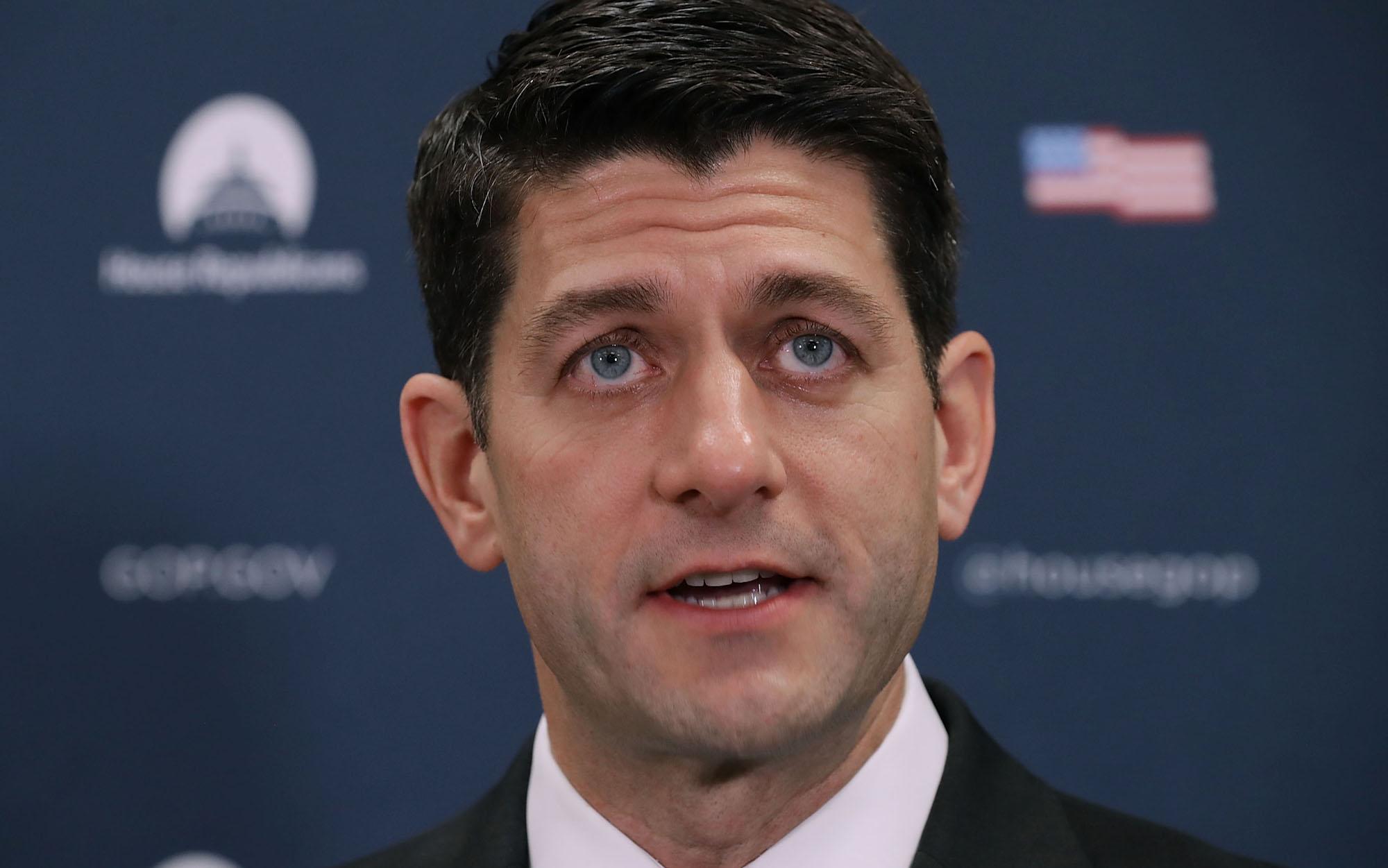Paul Ryan defends Donald Trump's 'Muslim ban' but says rhetoric around it is dangerous
The House Speaker argued it made sense for the US to take a ‘pause’ and reform its vetting procedures

House Speaker Paul Ryan insisted Donald Trump’s Muslim ban was not dangerous for the US, but the "rhetoric" around it was.
Three days after Mr Trump signed an executive order to ban refugees from seven countries and indefinitely suspend Syrian refugees, Mr Ryan argued that it was merely the way people spoke about the ban which could act as an incentive for terrorists to recruit anti-US operatives.
"I think the rhetoric around this could be used for a recruiting tool [for terrorists] and I think that’s dangerous but remember these countries were named by the Obama administration and there is an issue with terrorists trying to infiltrate a refugee population.
"There is nothing wrong with taking a pause and making sure the proper vetting standards are in place."
Around 12,500 Syrian refugees were admitted to the US last year after being vetted for at least two years.
The ban led to large protests at airports around the US and to the former acting Attorney General Sally Yates instructing lawyers not to defend the travel ban - she was then fired at the weekend for "betraying" Mr Trump.
The President’s executive order also faces severe criticism from human rights activists, Democrats and a growing group of Republicans.
Mr Ryan himself tweeted against Mr Trump’s proposal for extreme vetting and a religious test of incoming refugees and immigrants last July, saying the proposal was "not reflective of America’s fundamental values".
"I reject it," he wrote.
His spokeswoman defended Mr Ryan’s support of the the newly-imposed ban, as it was "not a religious test and was not a ban on people of any religion".
At a GOP press conference on Monday morning, Mr Ryan said that national security should be the main focus.
"We can be generous and support our national security at the same time," he said.
He added that the roll-out of the ban - with no guidance to airports, airlines or about green card and visa holders - caused confusion.
"Now I think it’s regrettable that there was some confusion on the roll-out of this," he said.
"No one wanted to see people with green cards or special immigrant visas like translators get caught up in all of this. And so I think, regrettably the roll-out was confusing but on a go-forward basis I’m confident that [Department of Homeland Security] Secretary [James] Kelly is going to make sure this is done correctly, that they get a good review and we get this up and running with the kind of vetting we want to see."
The blanket order blocks citizens from Iran, Iraq, Syria, Yemen, Sudan, Somalia and Libya from entering the country for at least 90 days. It also bans refugees from anywhere in the world for 120 days, and indefinitely bans refugees from Syria.
Mr Ryan insisted there was still a role for Congress to provide oversight on Mr Trump’s executive orders.
The Republican prompted the audience at the conference to “remember the Paris attacks” as support for the travel ban.
Not one person from the seven countries affected by the ban has carried out a terrorist attack in the US. Countries like Saudi Arabia, from where the 9/11 hijackers came, are not on the list.
Other Republicans like South Carolina senator Lindsey Graham have described the ban as a "self-inflicted wound".
But Mr Ryan and Senate Majority Leader Mitch McConnell are not among them.
Join our commenting forum
Join thought-provoking conversations, follow other Independent readers and see their replies
Comments
Bookmark popover
Removed from bookmarks